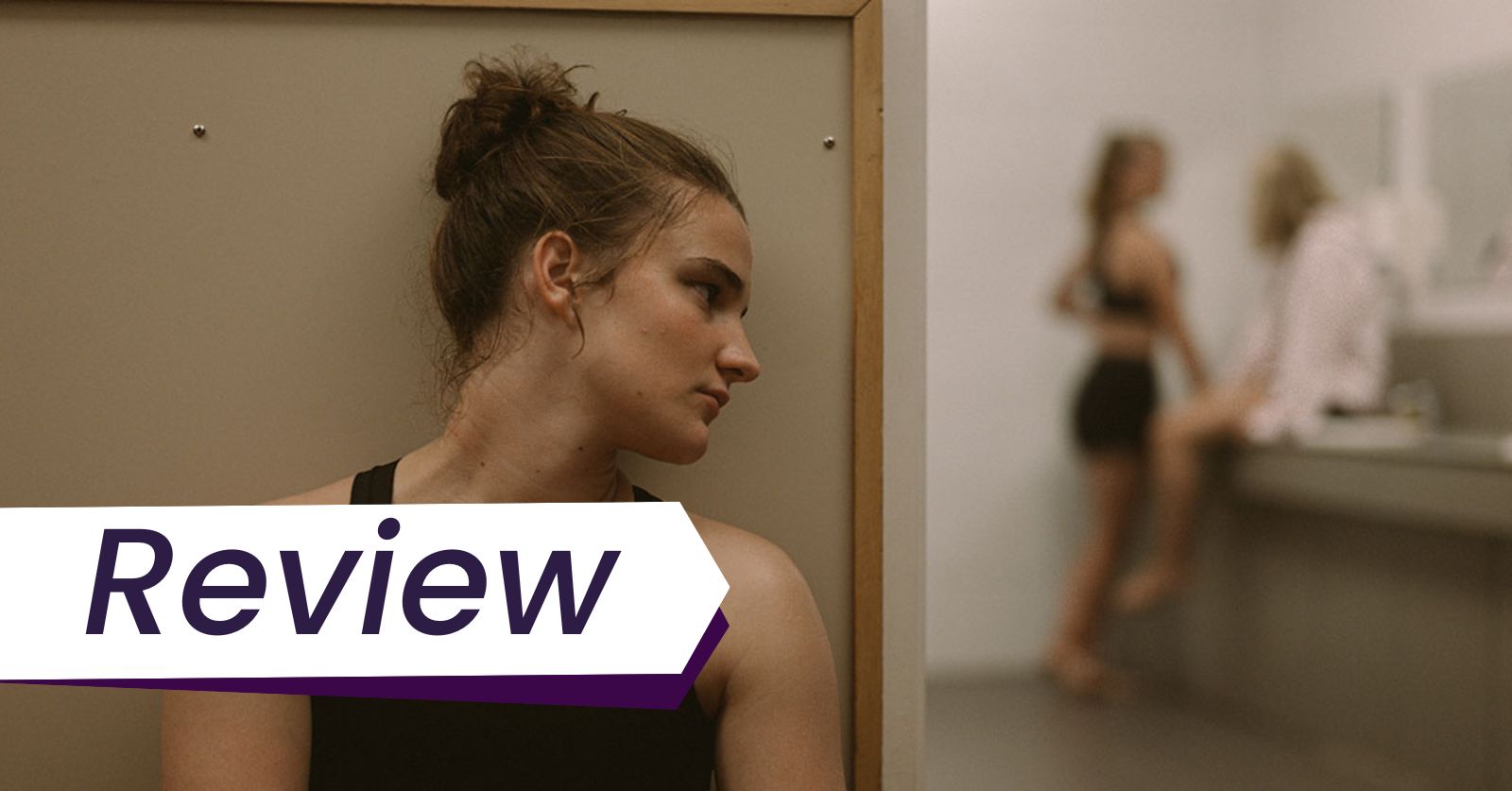Alex Heeney reviews Belgian filmmaker Leonardo van Dijl’s tennis-set film Julie Keeps Quiet about a teenage girl re-learning the importance of boundaries after a possible sexual assault.
Listen to our TIFF 2024 podcast on sports films — out Saturday — that aren’t about sports for a more detailed discussion fo the film. Subscribe to the podcast to stay updated
Read all of our TIFF 2024 coverage.

Discover one film you didn’t know you needed:
Not in the zeitgeist. Not pushed by streamers.
But still easy to find — and worth sitting with.
And a guide to help you do just that.
Leonardo van Dijl’s Cannes Critics’ Week highlight, Julie Keeps Quiet, is a thoughtful character study about a teenage tennis athlete coping with the aftermath of a sexual abuse scandal from her coach. The eponymous Julie spends the film in a very internal world, removed from her surroundings; van Dijl uses shallow focus and deep frames to emphasize this. The star tennis player at her local tennis club, she already feels alienated as the only person in the club who isn’t paying her way through. When a former student of her coach dies by suicide, an investigation begins into the coach’s culpability.
The film is about a girl coping with what happens when boundaries have been so irreparably breached that you don’t even know what is appropriate anymore. Tennis, with its carefully outlined court and rules about what is in and out of bounds, is an excellent metaphor for this. Van Dijl is conscious of when sounds, like an unseen phone alert, and people breach the frame or push across it into another person’s space. Van Dijl directed Julie Keeps Quiet with an incredible formal precision, favouring carefully blocked still frames. One particularly tense scene finds two characters seated across from each other at a table, and the choreography is all in where their hands are.
How Julie Keeps Quiet differs from other stories of childhood sexual assault
Unlike other stories about adults inappropriately crossing boundaries with children, like Una and Slalom, Van Dijl models what good boundaries look like in the form of Julie’s replacement coach. As viewers, we are wary whenever he shares a frame with her: will he come too close? But there’s a casualness to his body language, an understanding of what’s appropriate when and where, and how he quietly but respectfully enforces this while ensuring he respects Julie’s boundaries. It’s a hopeful addition that renders Julie Keeps Quiet more than just an excavation of trauma but of the possibilities for moving forward.
The title Julie Keeps Quiet reminds me of the oppositely titled The Screaming Man, a film in which nobody actually screams — except on the inside. From the beginning, we sense that Julie has a secret, and it’s true that she never explicitly shares it. But she repeatedly hints at it to the people around her she trusts in ways she knows they couldn’t have missed. The script by Leonardo van Dijl and Ruth Becqueart is very thoughtful about how we talk around difficult subjects, communicating with body language and adjacent truths.
Unlike the hit tennis film of the year, Challengers, Julie Keeps Quiet stars a real teenage tennis athlete (Tessa Van den Broeck). As a story about bodies and people pushing their bodies, a non-professional actor who looks the part — in a way only possible from years of training — helps immensely. The performance feels very much crafted by van Dijl’s directorial eye, as the frame usually prioritizes his mise en scène over her reactions, and she’s only asked to play one note. Still, Van den Broeck has some incredible moments.

